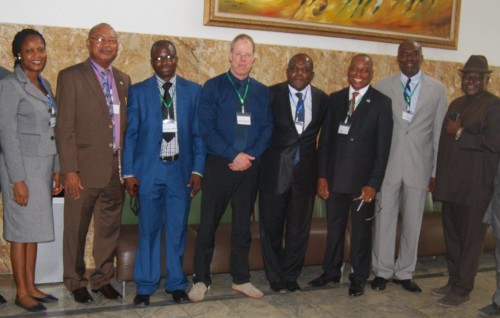A breakthrough study sponsored by Wetlands International in collaboration with the Rivers State University of Science and Technology (RSUST) has successfully completed work on developing coherent information base on the ecosystem services delivered by various Niger Delta habitats.

Results of the study conducted by the Department of Applied and Environmental Biology of the RSUST, Port Harcourt, were validated at a recent workshop held in the Rivers State capital. The research which was conducted between February 2014 and April 2015 examined six ecosystem services associated with the communities identified from a listing and defined through both public and expert focus groups. These include Fish Nursery and Breeding, Forest Carbon Sequestration, Enhancing soil quality of stunted mangrove area, Water Quality Enhancement, Shoreline Protection and Erosion Control.
The workshop, held under the sponsorship of Wetlands International’s Sustainable Livelihoods and Biodiversity Project (SLBP), was on the values people place on ecosystem services in model communities of the Niger Delta.
Among the significance of the workshop was to provide information from the study on the role of wetland ecosystem services in supporting livelihoods in parts of the Niger Delta, with specific emphasis on the use of Geographic Information System (GIS) maps in highlighting the range and distribution of ecosystem service types linked to the different ecological zones, as well as the societal values of these ecosystem services, stakeholder linkages, and degree of access to services and possibility of improving livelihoods through wise use of resources.
The workshop was also able to provide information on a global feat achieved from the study which was the use of satellite imagery in the differentiation of Nypa Palm (Nypa fruticans) from mangrove plants. The information acquired from the imagery provides the opportunity to evaluate the “healthy state” capacity of the wetland ecosystems to deliver different ecosystem services in the Niger Delta. The health of the wetland ecosystem determines either a sustained flow of a variety of services or a maximum amount of one specific service.
Additionally, the massive land take of Nypa palm in parts of Niger Delta region and the gradual invasion in other areas of the region and their restriction to “one-to-no service” category can now be measured and integrated in any assessment across the member states in Nigeria’s Niger Delta.
Furthermore, the workshop provided step working structures that can be adopted to guide future work on ecosystem services in the Niger Delta. It provided operational structure of the five-step approach including mapping of the concerned wetland ecosystems, assessment of the condition of the wetland ecosystems and quantification of the services provided by the wetland ecosystems in pilot/model sites. Others are stakeholder mapping and their metrics of the wetland ecosystems and the conduct of an ecosystem valuation using an empirical choice experiment.
The workshop similarly afforded basic understanding of the habitat types with wetland characteristics in the Niger Delta.
Likewise, the workshop produced awareness on the need to complete inventory, documentation and re-classification of the Niger Delta wetland ecosystem that would ensure a coherent approach to support their integration into a wetland accounting system across member states in the Niger Delta.
On the overall, the workshop showed evidence of the use of pluralism and grass root participation from community stakeholders to value and quantification of indirect use ecosystem services for integration into traditional cost benefit analysis.
Beyond validating findings from the study, the workshop brought together several scientists across institutions in Nigeria and across Africa with the focus on raising awareness among key stakeholders on the importance of the Niger Delta ecosystems to human well-being and economic prosperity.
Key speakers include Professor B. B. Fakae (Vice Chancellor, RSUST), Dr. John Onwuteaka (also of RSUST who was the Principal Investigator), Professor Stella Madueme (University of Nigeria, Nsukka), Dr. Ndinga Assitou (Wetlands International Africa, Dakar), Mr. Ward Hagemeijer (Wetlands International, Netherlands) and Dr. Richard Mulwa of the Centre for advanced Studies in Environmental Law and Policy (CASELAP), University of Nairobi, Kenya.
